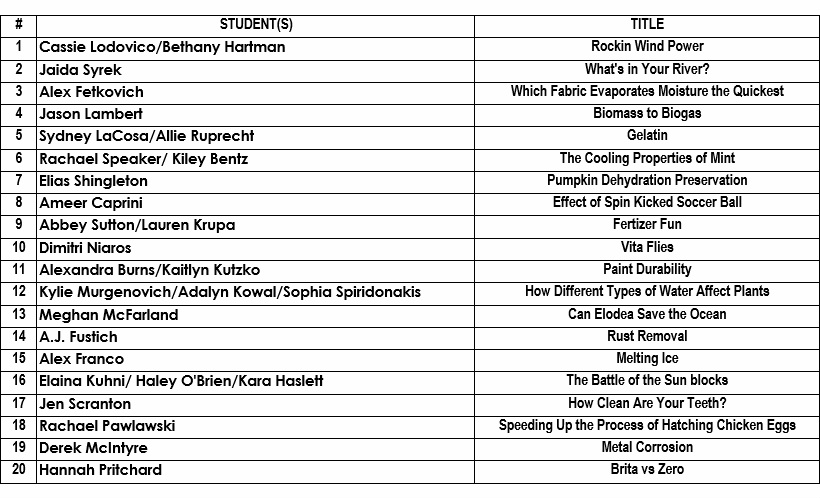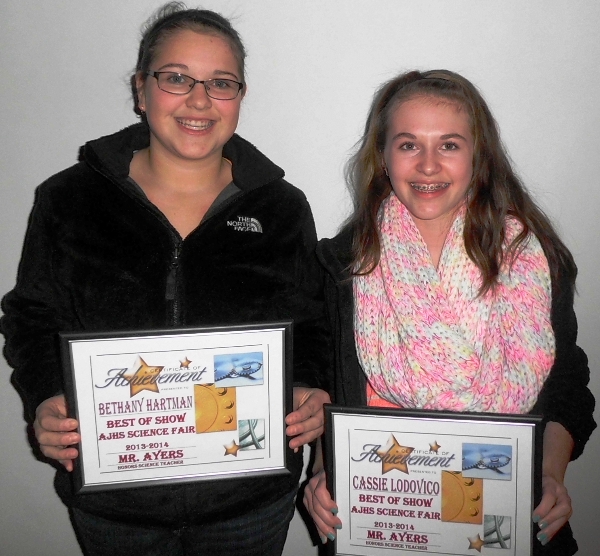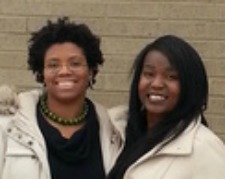Don Ayers, eighth-grade integrated science and honors teacher, said the benefits of the science fair goes beyond learning about science.
Sure, students become better at science, but he said they also become more familiar with the library, learn to use a camera or word processing program, are able to master a mathematical analysis, get public speaking practice, and more.
"Some of these skills may be intimidating to learn. When you're working on a science fair project, it's easy to get help, plus no one expects perfection," Ayers said. "You'll become more confident, more mature, more disciplined, and more skilled."
The junior high has been involved in the science fair for 17 years, said Don Ayers, who also has been a part for the past decade. Ayers said the projects offer students a channel to learn something new while having "a lot of fun."
"You may find something new doing your own project, plus you'll learn from other people. Real research is done for science fairs, sometimes resulting in important inventions and discoveries. Even if your project isn't earth-shattering, you'll almost certainly learn something you didn't know before you started," Ayers said.
Professional judges included a University of Pittsburgh professor, as well as officials from Bayer Corp., the Beaver County Conservation District, the Allegheny County Health Department and the state Department of Environmental Protection.
Students with the top 20 projects will go on to compete at the Pittsburgh Regional Science & Engineering Fair on March 28 and 29 at Heinz Field.
Ayers said the science fair projects that students put together for class may earn them you an "A" and even a pretty ribbon, but if they can take that project to a higher level -- such as a regional or state competition -- then success can be measured in terms of cash prizes, recognition, scholarships, educational opportunities, and employment offers.
"Even if you don't win, the experience is nice to put on your college application," he said.
Ambridge science teachers are working to make other educational strides in the subject. Ayers and fellow science teacher Brad Olenic were recently awarded a science equipment grant from the Society for Analytical Chemists of Pittsburgh. The funds will go to purchase 30 compact digital scales that will be used in conjunction with the STEM day project in April at Economy Elementary School, according to the district.
Seventh- and eighth-grade honors science students will be teaching third-graders using various projects and lessons during the STEM day.






 RSS Feed
RSS Feed